
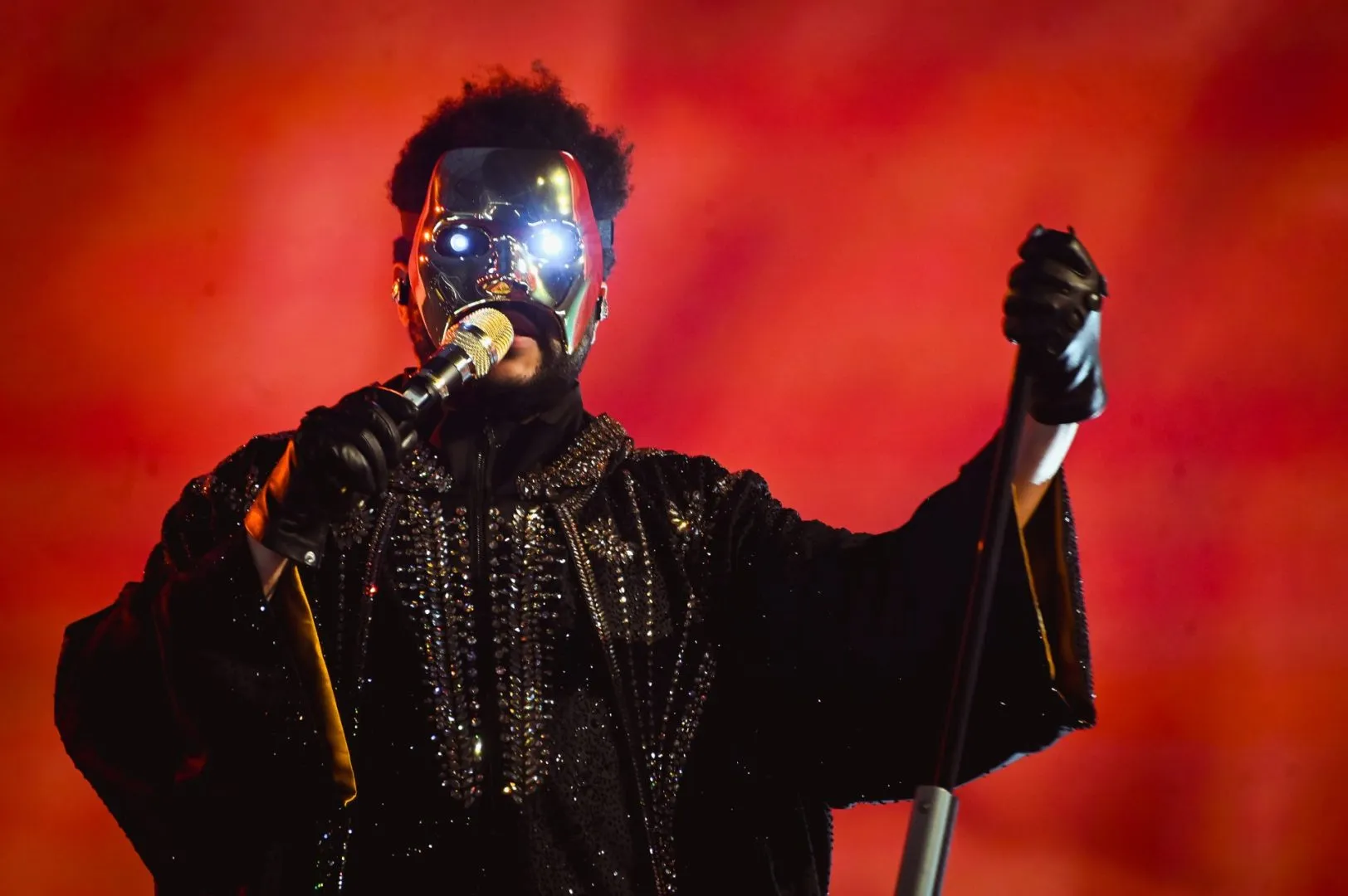
Chaos, Lights, and the Unexpected: The Weeknd’s Stadium Show Left Fans Speechless — But What Happened Offstage?
When The Weeknd took the stage at the sold-out MetLife Stadium, fans knew they were in for something unforgettable. With his global reputation for pushing the boundaries of music, art, and theatricality, Abel Tesfaye — the enigmatic artist behind the persona — had promised a show like no other. What no one could have predicted, though, was that the most talked-about moments wouldn’t all come from the dazzling lights, haunting vocals, or breathtaking visuals. Some of the most shocking, emotional, and downright surreal moments came from what happened offstage — in the shadows of the spectacle, behind the curtain of perfection.
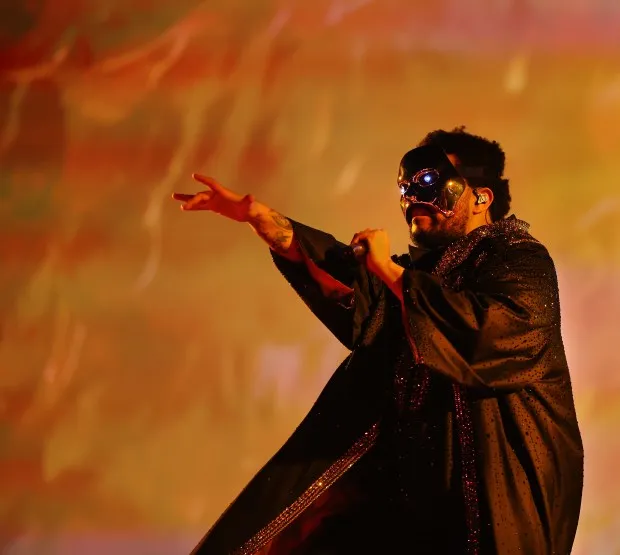
A Storm of Anticipation and Sound
From the moment the crowd poured into the stadium, there was an energy pulsing through the air that couldn’t be tamed. Thousands of fans, draped in After Hours red, Dawn FM silver, and the eerie glow of LED headbands, chanted his name with a reverence usually reserved for prophets or rock gods. Even before the lights dimmed, the roar of anticipation was nearly deafening.
Then, without warning, the massive LED screen above the stage cracked to life — a pulsing heartbeat, red and slow, syncing with the collective breath of the crowd. A voice echoed: “You’re now entering The Dawn.” The beat dropped, and The Weeknd emerged in silhouette, his presence overwhelming. It was a visual thunderclap — smoke machines, lasers slicing the air, and dancers in metallic veils moving like androids in a fever dream. The stadium trembled beneath their feet.
The Weeknd didn’t just perform. He embodied something larger, something spiritual, cinematic, futuristic. With each song — “Take My Breath,” “Blinding Lights,” “Gasoline,” — he wove together eras of his artistry into one dystopian opera. It felt choreographed by chaos itself, as if he was giving form to the emotional wreckage of modern existence. For nearly two hours, he turned the stage into a cathedral of heartbreak and redemption.
But amid this perfectly curated madness, strange things began to ripple beneath the surface. Not everything, it turns out, was according to plan.
The Power Flicker That Froze 80,000 People
Just as the eerie notes of “Save Your Tears” echoed through the venue, the unexpected struck. Without any dramatic warning, there was a sudden flicker in the lights, a brief moment of blackout that plunged sections of the stadium into pitch darkness. For a few long seconds, the only light came from fans’ phones and the eerie stage glow still pulsing in red. Whispers swept through the crowd. Was this planned? A theatrical transition? Or had something gone horribly wrong?
When the lights returned, The Weeknd was gone from the stage.
Confusion morphed into anxiety. Some fans began chanting, others booed in frustration, but most simply waited in frozen awe, unsure whether they were witnessing a breakdown in the show or just another layer in his artistic vision. Stagehands in black sprinted across the stage, whispering into headsets, and there was visible panic among the crew. Something real was happening. And it wasn’t part of the script.
Backstage Whispers and the Broken Mic Incident
While fans were left in suspense, backstage was reportedly buzzing with a mixture of urgency and disbelief. According to a lighting technician who spoke anonymously to a local journalist, a critical system malfunction had occurred mid-song — not just a lighting issue, but a mic feed failure that rendered The Weeknd’s vocals completely inaudible to the in-ear monitors and portions of the live audience.
But the real twist? Rather than halt the show, The Weeknd had apparently demanded that the team fix it live, refusing to leave the stage initially. The flickering lights and abrupt exit weren’t part of the plan — they were a forced emergency response to prevent what could have been a disastrous audio failure broadcast globally on live stream platforms.
It was the artist himself who reportedly threw down his mic in frustration backstage after the cut, demanding answers and walking off for a moment to gather himself. Those around him described the energy as tense but not chaotic — focused, intense, and deeply emotional. He was said to be pacing, silent, his hand pressed to his chest as he tried to calm himself. This wasn’t ego. This was passion — and the weight of perfectionism that only someone like Abel Tesfaye could understand.
A Surprise Return and Emotional Redemption
When The Weeknd returned to the stage fifteen minutes later, the energy had shifted. Gone was the polished, aloof god of heartbreak. In his place stood a man stripped of pretense — raw, determined, and visibly emotional. As he walked back to the mic, the crowd erupted into cheers, this time less like fans greeting a star and more like believers welcoming back their shepherd.
He didn’t speak for long. Just a few words, enough to break the tension but not the spell:
“Sometimes the darkness isn’t planned. But it shows you who’s real.”
Then he launched into “Call Out My Name,” his voice cracking slightly in the opening line — and it was that imperfection, that audible crack, that sent thousands of fans into tears. It wasn’t about the note. It was about the moment. He wasn’t singing to impress anymore. He was singing to connect, and the result was unforgettable.
From that point on, the show took on a different tone. The grandeur remained, but there was a new intimacy in how he delivered each lyric. It was as if the stage had broken — not literally, but emotionally — and from the cracks emerged something more honest, more haunting, more human.
Offstage Rumors and a Mysterious Encounter
As if the night hadn’t delivered enough twists, rumors began circulating online within hours that something else had happened backstage — something even more personal. According to multiple sources, an unexpected visitor had made their way into The Weeknd’s dressing room during the blackout: Bella Hadid.
While there’s no confirmed footage, whispers of Bella being spotted entering a VIP access corridor moments before the mic failure began flooded fan forums and social media. The two had not been seen together publicly for months. Yet, some say she was there not for drama, but for comfort — a quiet gesture of support amid the chaos.
Insiders suggest that the emotional intensity of the second half of the show might have been fueled by more than just technical difficulty — it may have come from the silent presence of someone he once loved deeply, now sitting in the shadows of the show that he built to express that very loss. Fans on TikTok dissected every lyric, every camera angle, every glance offstage during the final songs, convinced that Abel was no longer performing to the crowd, but to someone specific.
It remains speculation, but in the world of The Weeknd, speculation is part of the spell. He has always blurred the lines between reality and myth, art and autobiography. And maybe that’s the point — that what’s real and what’s staged aren’t mutually exclusive, but layered atop each other like the many versions of himself he performs for the world.
The End That Felt Like a Beginning
When the final notes of “Moth to a Flame” reverberated through the stadium, and The Weeknd stood alone under a single beam of white light, there was a silence that spoke louder than applause. No fireworks. No glitter. Just the echo of his voice and the stillness of 80,000 souls holding their breath.
Then, without warning, the lights cut entirely — this time by design — and the screen simply read: “Goodnight.”
As fans filtered out, buzzing with questions, theories, and teary-eyed wonder, one thing was clear: this was more than a concert. It was a performance that reminded everyone what live music is supposed to do — to stir, to shake, to shift something inside you. Even in the chaos. Especially in the chaos.
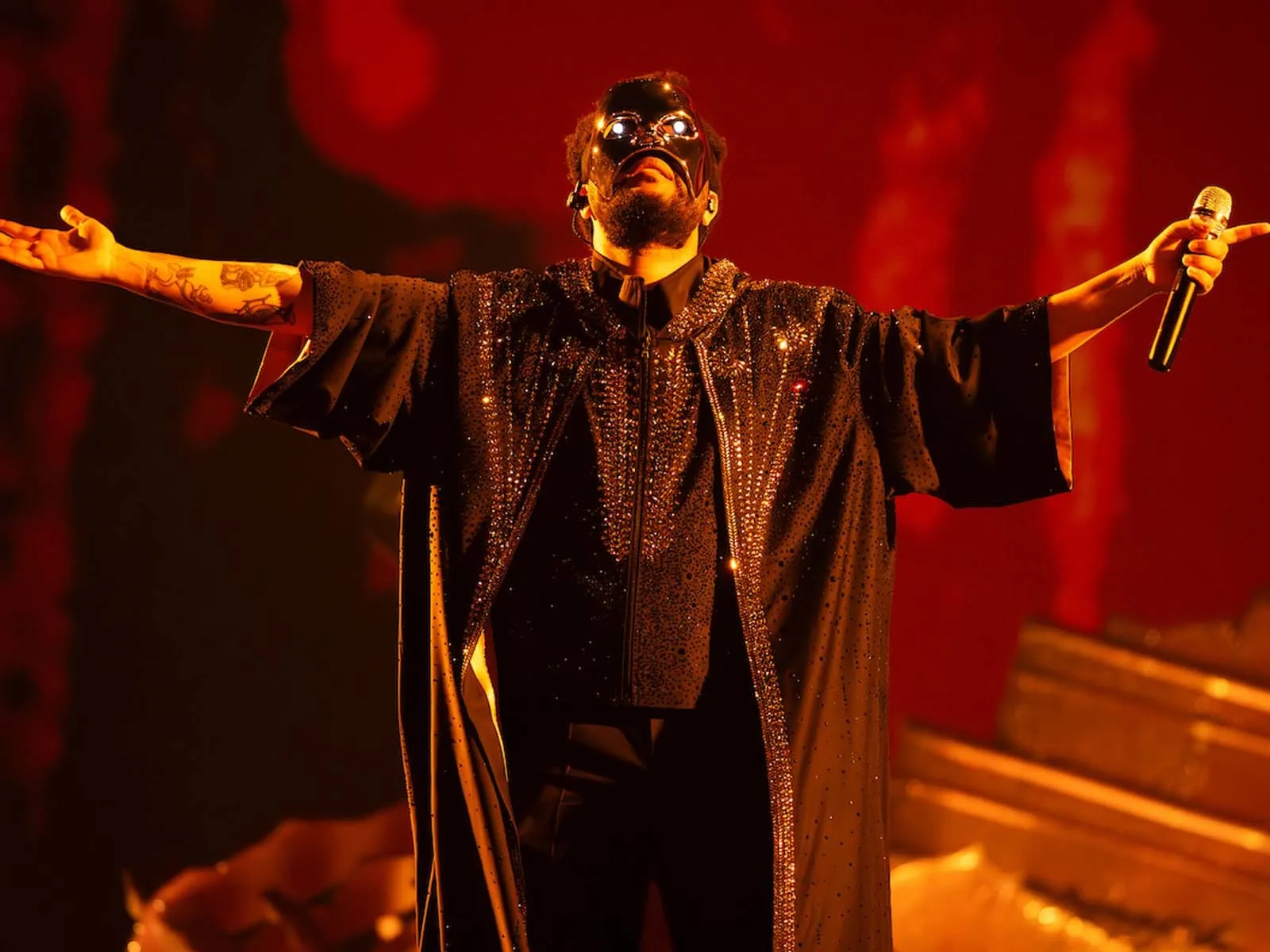
Because that’s what The Weeknd has always represented. Not perfection, but vulnerability masquerading as power. Not control, but the struggle to maintain it. And on this night, in a stadium that tried to hold him and failed, he showed what happens when an artist confronts the unexpected and still manages to create magic from the debris.
Conclusion: A Night That Broke and Rebuilt the Myth
What happened at MetLife Stadium wasn’t just a glitch in a flawless tour. It was a moment that redefined who The Weeknd is — not just a performer of sleek sounds and haunting visuals, but a man standing on the edge of his own emotional limits, daring to fall and rise in front of millions.
And what happened offstage? That’s the part that may never fully be confirmed, yet will live on in whispers, theories, and the hearts of those who witnessed a night where chaos met beauty — and The Weeknd didn’t just perform through it. He became it.






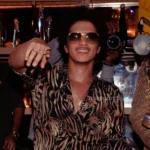

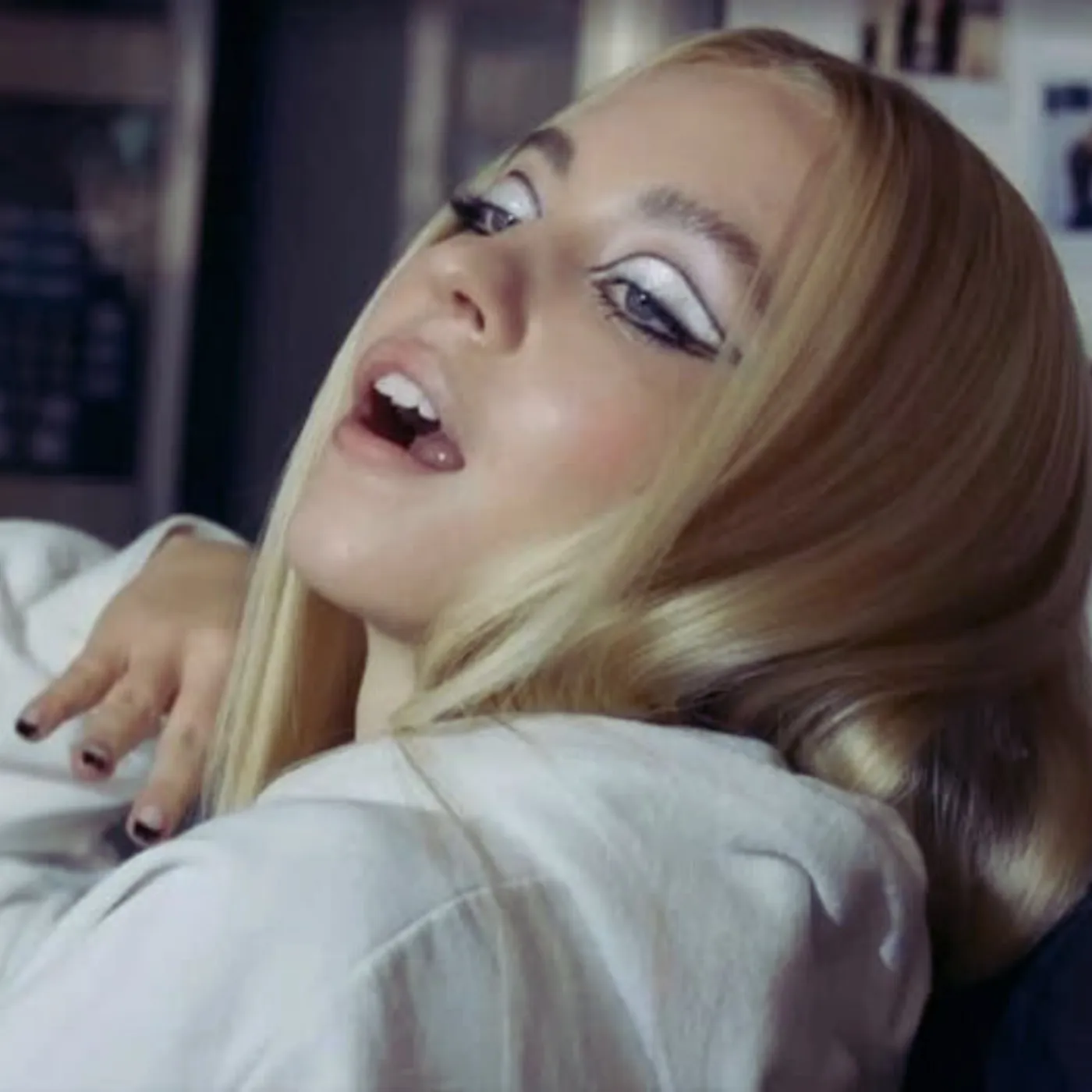

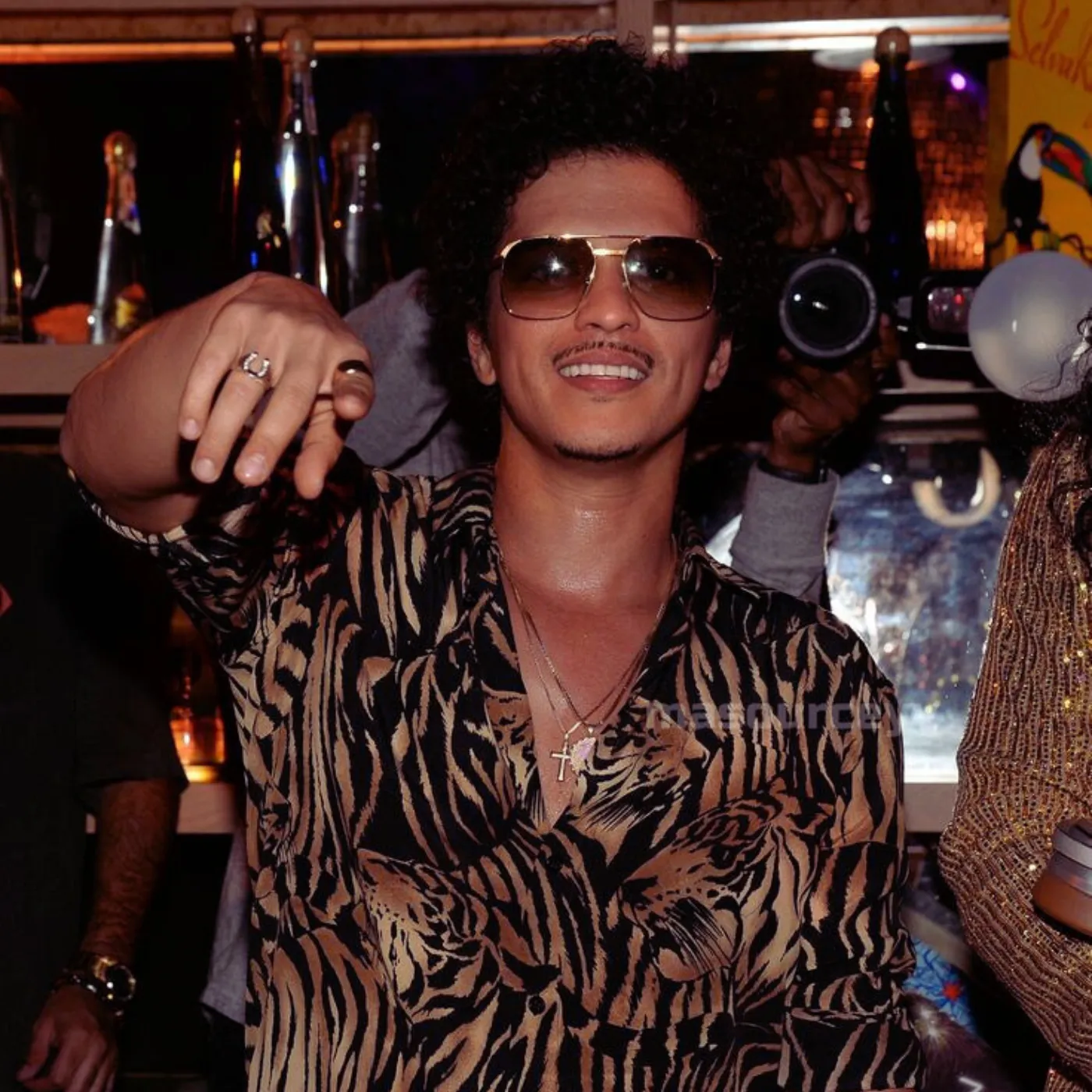








Post Comment